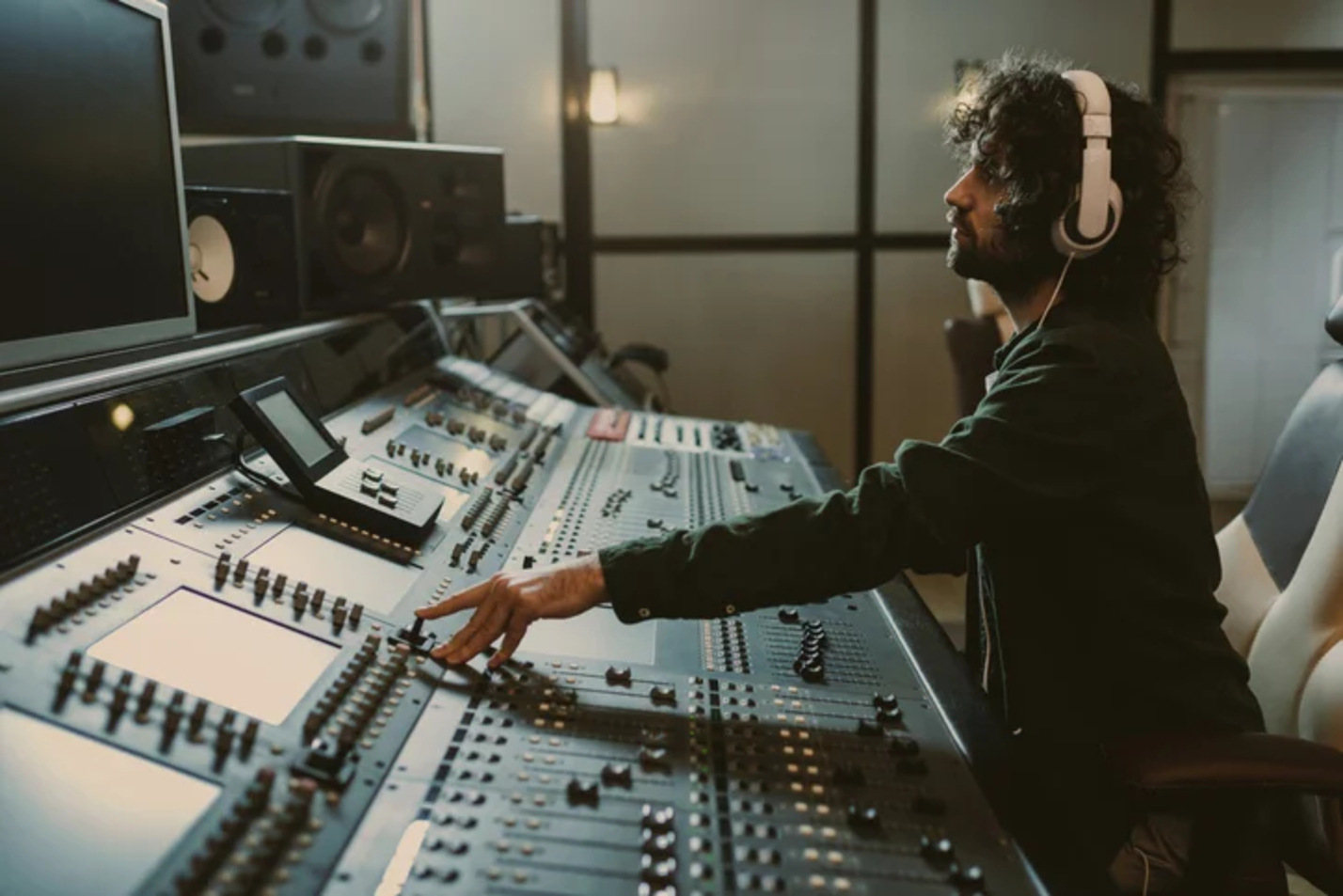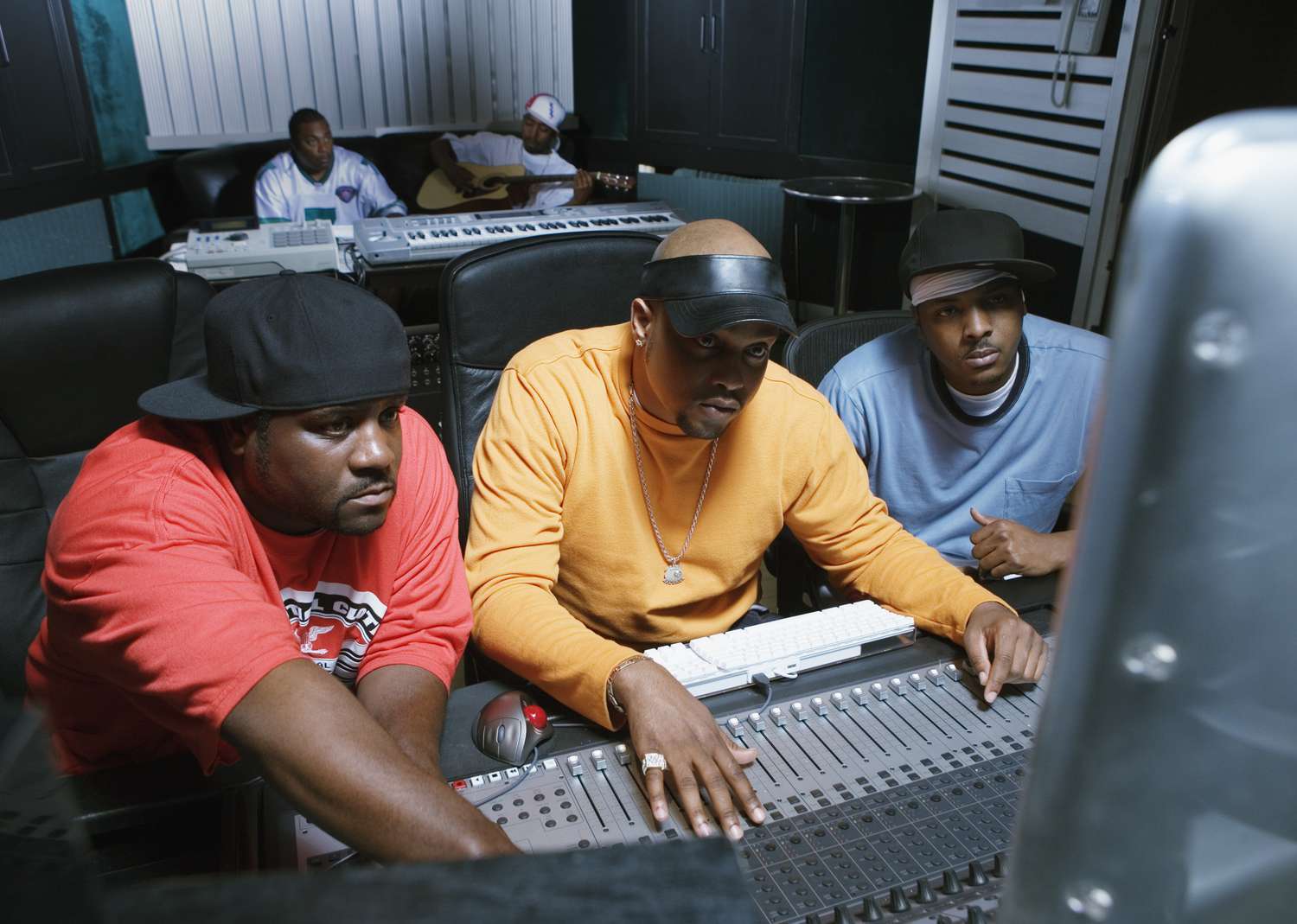Home>Production & Technology>Producer>What Is An Associate Producer In Music


Producer
What Is An Associate Producer In Music
Published: March 6, 2024
Learn the role and responsibilities of an associate producer in the music industry. Understand the vital role they play in supporting the production process. Discover how an associate producer differs from a music producer.
(Many of the links in this article redirect to a specific reviewed product. Your purchase of these products through affiliate links helps to generate commission for AudioLover.com, at no extra cost. Learn more)
Table of Contents
Roles and Responsibilities of an Associate Producer
An associate producer in the music industry plays a vital role in the creation and production of music. Their responsibilities are multi-faceted, encompassing various aspects of the production process. Here are the key roles and responsibilities of an associate producer:
-
Creative Input: An associate producer actively participates in the creative process of music production. They contribute ideas and insights to enhance the overall quality and appeal of the music. This can involve suggesting arrangements, instrumentation, and sonic elements to elevate the sound of the music.
-
Project Management: The associate producer assists in managing the logistics of a music production project. This includes coordinating schedules, booking studio time, and ensuring that all necessary resources are available for the recording process.
-
Technical Expertise: Associate producers are often well-versed in the technical aspects of music production. They work closely with sound engineers and musicians to ensure that the recording equipment is properly set up and that the sound quality meets professional standards.
-
Collaboration and Communication: Effective communication and collaboration are essential aspects of an associate producer's role. They work closely with artists, songwriters, musicians, and other production team members to bring the creative vision to fruition.
-
Budgeting and Finance: Associate producers may be involved in budgeting and financial aspects of music production. This can include cost estimation, expense tracking, and ensuring that the project stays within budgetary constraints.
-
Quality Control: Throughout the production process, associate producers maintain a keen eye on the quality of the music being created. They provide feedback and guidance to ensure that the final product meets the artistic and technical standards set for the project.
-
Post-Production Oversight: After the recording phase, associate producers may be involved in the post-production process, working with mixing and mastering engineers to achieve the desired sound for the final release.
-
Industry Networking: Associate producers often engage in networking activities to build connections within the music industry. This can involve attending industry events, connecting with potential collaborators, and staying updated on industry trends.
In summary, the role of an associate producer in music production is diverse and multifaceted. They contribute creatively, manage logistics, ensure technical excellence, and play a crucial part in bringing the artistic vision to life. This dynamic role requires a blend of creative, technical, and managerial skills, making it an integral part of the music production process.
Qualifications and Skills Required
Becoming an associate producer in the music industry requires a unique combination of qualifications and skills that are essential for excelling in this dynamic role. While there is no strict academic path to becoming an associate producer, a strong foundation in music, combined with relevant experience and skills, is crucial for success in this field.
Qualifications
-
Music Education: A formal education in music, such as a degree in music production, audio engineering, or music theory, can provide valuable knowledge and understanding of the technical and creative aspects of music production.
-
Business or Management Degree: While not mandatory, a degree in business or management can be advantageous, as it equips aspiring associate producers with essential skills in project management, budgeting, and organizational leadership.
Skills
-
Musical Proficiency: An in-depth understanding of music theory, proficiency in playing musical instruments, and a discerning ear for sound quality are fundamental skills for an associate producer. This enables them to effectively communicate with musicians and contribute creatively to the production process.
-
Technical Expertise: Proficiency in using digital audio workstations (DAWs), recording equipment, and sound processing tools is essential. Additionally, knowledge of acoustics, signal flow, and studio technology is valuable for ensuring high-quality recordings.
-
Communication and Collaboration: Strong interpersonal skills, effective communication, and the ability to collaborate with diverse personalities are vital for successful interaction with artists, engineers, and other stakeholders involved in the production process.
-
Project Management: Organizational skills, attention to detail, and the ability to manage multiple tasks and deadlines are crucial for overseeing the logistics of a music production project.
-
Creativity and Innovation: An associate producer should possess a creative mindset, offering innovative ideas and solutions to enhance the artistic quality of the music being produced.
-
Industry Knowledge: Staying informed about industry trends, emerging technologies, and the evolving landscape of the music business is essential for adapting to changing demands and maintaining a competitive edge.
-
Problem-Solving Abilities: The capacity to address challenges, adapt to unforeseen circumstances, and find effective solutions is a valuable skill for navigating the complexities of music production.
In summary, while formal qualifications provide a strong educational foundation, the practical application of skills and hands-on experience is equally vital for aspiring associate producers. This combination of qualifications and skills equips individuals with the expertise needed to thrive in the dynamic and multifaceted role of an associate producer in the music industry.
Importance of an Associate Producer in Music Production
The role of an associate producer in music production is of paramount importance, contributing significantly to the overall quality, creativity, and success of a musical project. Their multifaceted involvement encompasses creative, technical, and managerial aspects, making them indispensable in the dynamic landscape of music production.
First and foremost, associate producers bring a wealth of creative input to the table. Their insights and ideas can elevate the artistic vision of a musical piece, adding depth and innovation to the production process. Whether it involves suggesting unique instrumentation, refining arrangements, or enhancing sonic elements, their creative contributions often shape the final outcome of the music.
From a technical standpoint, associate producers play a pivotal role in ensuring the technical excellence of a recording. Their proficiency in using recording equipment, digital audio workstations, and studio technology is instrumental in achieving high-quality sound recordings. By working closely with sound engineers and musicians, they help maintain professional standards, resulting in a polished and sonically impressive final product.
Moreover, the project management skills of associate producers are crucial for the seamless execution of music production. They oversee logistical aspects such as scheduling, studio bookings, and resource coordination, ensuring that the production process progresses efficiently and stays on track. This organizational prowess is essential for managing the complexities of a music project, ultimately contributing to its timely completion and success.
In addition to their creative and technical contributions, associate producers serve as effective communicators and collaborators. Their ability to liaise with artists, songwriters, musicians, and other production team members fosters a cohesive and productive working environment. This collaborative synergy is instrumental in bringing the creative vision to fruition, as it enables seamless integration of diverse talents and perspectives into the music production process.
Furthermore, the role of associate producers extends to post-production oversight, where they work closely with mixing and mastering engineers to ensure that the final sound meets the artistic and technical standards set for the project. Their meticulous attention to detail and commitment to quality control are evident throughout the production process, culminating in a refined and polished musical output.
In summary, the importance of an associate producer in music production cannot be overstated. Their multifaceted contributions encompass creative, technical, and managerial realms, shaping the artistic vision, ensuring technical excellence, and fostering collaborative synergy. As integral members of the music production team, associate producers play a pivotal role in bringing musical creations to life, enriching the industry with their diverse expertise and unwavering dedication.
How to Become an Associate Producer in the Music Industry
Becoming an associate producer in the music industry is a journey that requires a blend of passion, dedication, and a strategic approach to skill development and industry networking. While there is no singular path to achieving this role, there are several key steps that aspiring individuals can take to pave their way into the dynamic realm of music production.
1. Cultivate Musical Proficiency
An essential foundation for aspiring associate producers is a deep understanding of music theory, proficiency in playing musical instruments, and a discerning ear for sound quality. This musical proficiency forms the basis for effective communication with musicians and contributes to the creative aspects of music production.
2. Acquire Technical Expertise
Proficiency in using digital audio workstations (DAWs), recording equipment, and sound processing tools is crucial for aspiring associate producers. Familiarity with studio technology, signal flow, and acoustics enhances their ability to ensure high-quality recordings and technical excellence in music production.
3. Gain Practical Experience
Hands-on experience in music production is invaluable. This can be gained through internships, entry-level positions in recording studios, or by working on independent music projects. Practical exposure provides aspiring associate producers with real-world insights into the intricacies of music production and fosters skill development in a professional setting.
4. Pursue Relevant Education
While not mandatory, pursuing formal education in music production, audio engineering, or music business can provide valuable knowledge and technical skills. Additionally, courses or workshops focused on project management, budgeting, and industry trends can enhance the holistic skill set required for the role of an associate producer.
5. Build a Network
Networking within the music industry is essential for aspiring associate producers. Attending industry events, connecting with established professionals, and seeking mentorship opportunities can open doors for collaboration and career advancement. Building a network of contacts within the industry creates opportunities for learning, growth, and potential career prospects.
6. Showcase Creativity and Innovation
Aspiring associate producers should actively engage in creative pursuits, such as music composition, arrangement, or production of their own projects. Showcasing creativity and innovation through personal endeavors not only demonstrates skill but also reflects a genuine passion for music production.
7. Stay Informed and Adaptable
The music industry is constantly evolving, with new technologies and trends shaping the production landscape. Aspiring associate producers should stay informed about industry developments, emerging tools, and changing consumer preferences. Adaptability and a willingness to embrace innovation are key attributes for success in this dynamic field.
By following these steps and remaining dedicated to their craft, aspiring individuals can position themselves for potential opportunities as associate producers in the music industry. The combination of musical proficiency, technical expertise, practical experience, education, networking, creativity, and adaptability forms a robust foundation for embarking on a fulfilling and impactful career in music production.











